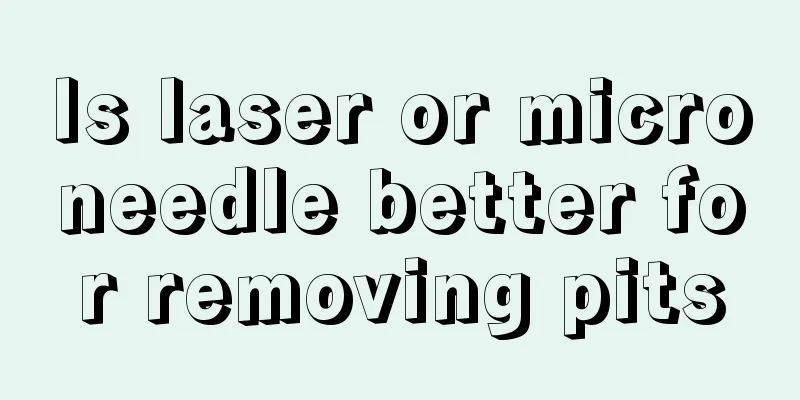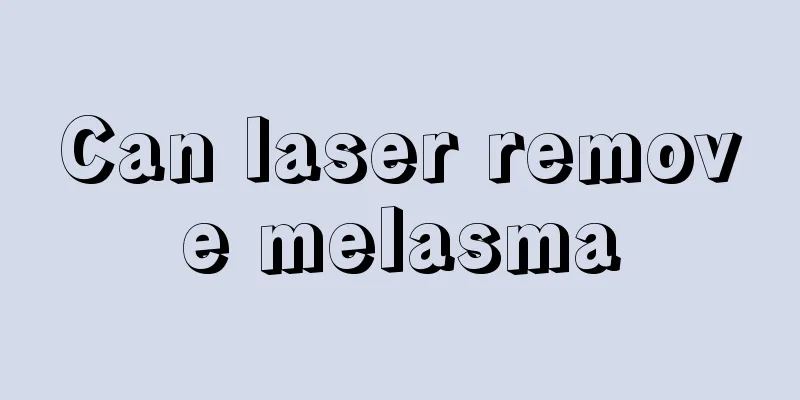What to do if you have dental plaque

|
Some of you may not know what dental plaque is. In fact, dental plaque is a new biofilm that adheres to the surface of teeth and contains a lot of bacteria and substances. If you want to remove dental plaque, simply brushing your teeth is not enough. You need to use some more professional cleaning products. What is dental plaque? Dental plaque refers to the bacterial biofilm that adheres to the surface of teeth or other soft tissues in the mouth. It is composed of a large number of bacteria, intercellular substances, a small number of white blood cells, desquamated epithelial cells and food debris. It is a "thick" layer and is naturally very sticky. Therefore, rinsing the mouth or just washing with water cannot completely remove dental plaque. Plus, as mentioned at the beginning, dental plaque is almost invisible. So it is understandable that it is cunning and it will get entangled in your teeth without you knowing it. As the masters of our teeth, we have basically done everything that a "lazy person" should do. If we can't see it, we just pretend not to see it! This cunning dental plaque takes advantage of our mentality to start doing evil. Tooth decay and periodontitis also start from it. As mentioned before, dental plaque is a gathering place for bacteria. A large number of bacteria eat, drink, defecate, urinate and sleep on your teeth, and your teeth will naturally be corroded and decayed by them. If dental plaque is near the gums, harmful substances produced by bacteria will accumulate on the gums, causing periodontitis. How to remove dental plaque Bacteria multiply very quickly, and so does dental plaque! Generally, dental plaque will begin to form again a few minutes after you have just cleaned your teeth, and it will return to its peak state in about 12 hours. So what should we do? Since rinsing your mouth is useless, let's just use a toothbrush to remove it violently! Brushing teeth is a basic measure to remove dental plaque and it is also the most important method. If you brush your teeth properly, you can greatly reduce the amount of plaque on the surface of your teeth. Here we recommend that you brush your teeth at least twice a day. Note that it is at least! Simply brushing your teeth cannot effectively remove plaque from the adjacent surfaces of your teeth, so other auxiliary products are needed. Dental floss is one of them. Dental floss can effectively remove dental plaque on the adjacent surfaces of teeth and prevent periodontal disease and interproximal caries. I would also like to remind everyone that if you find any problems with your teeth, you must go to the dentist for professional treatment in time. |
<<: The reason why large areas of spots appear on the face
>>: The role of fluoride toothpaste
Recommend
What to do if you have a disagreement with your leader
Employment is a very learned subject for everyone...
Will having prostate cancer affect pregnancy? Do you know how harmful prostate cancer is?
Prostate cancer is particularly harmful. Once the...
Tips for wrinkled cotton and linen clothes
Many people like to wear clothes made of cotton a...
Things to note when sweat steaming in summer
Steaming is a traditional Chinese medicine health...
Preparation before diagnosis of gallbladder cancer
Before undergoing gallbladder cancer resection, p...
Is it okay for junior high school girls not to wear underwear? Is it okay for junior high school girls not to wear bras?
In modern society, living conditions are getting ...
What are some tips for dry eyes
If your eyes often feel dry, you may be suffering...
What soup can reduce internal heat
Whenever the weather is hot, the most obvious fee...
What to do if the high heels are too big
High heels are a common type of shoe. For female ...
Are advanced cancers such as lung cancer and kidney cancer contagious?
People's living standards have improved a lot...
Can breast cancer with effusion lead to death?
Due to various reasons such as the female body, w...
How long can you live with malignant melanoma
How long can patients with late-stage melanoma li...
Drooling at night may be caused by inflammation. 5 sleep phenomena indicate disease
Entering sleep is the most relaxing time for a pe...
What's wrong with lower abdominal bloating and frequent farts?
The intestines are organs that digest food. Durin...
What happened if I suddenly wet the bed?
There is no need to make a fuss if you suddenly w...









